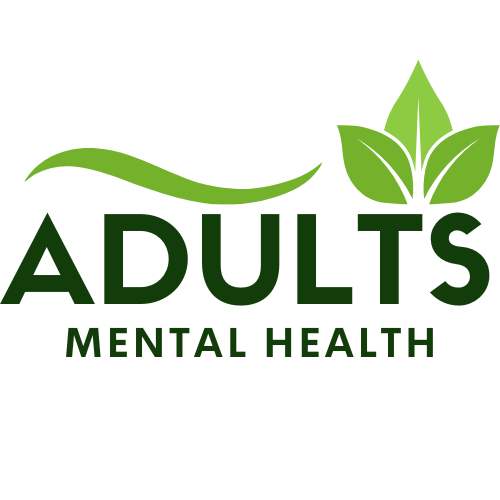Every element of our lives is impacted by mental health, from the quality of our relationships to how we manage stress at work. However, a lot of adults suffer in silence because they are reluctant to ask for help or are unsure of where to turn. This thorough guide explains the importance of mental health awareness for adults, when to get professional help, and doable actions you can take to put your mental health first.
Why It’s More Important Than Ever to Raise Awareness of Mental Health
Our mental well-being influences our thoughts, emotions, and ability to deal with day-to-day difficulties. Maintaining good mental health can seem like an uphill battle for adults who are balancing personal goals, family obligations, and career pressures. Persistent anxiety, depression, burnout, or even mysterious physical health issues are common signs of poor mental health.
The picture painted by the statistics is alarming. One in four people, according to the NHS, deal with a mental health issue every year, but many suffer in silence because of stigma or ignorance of the resources that are available.
The picture painted by the statistics is alarming. One in four people, according to the NHS, deal with a mental health issue every year, but many suffer in silence because of stigma or ignorance of the resources that are available.

There is a price for this silence. Mental health issues that go untreated can result in:
Reduced output and performance at work
tense interactions with friends and family
A higher chance of experiencing physical health issues
Decreased life satisfaction and quality of life
The first step in ending this cycle is awareness—realizing that getting help is a sign of strength, not weakness, and that mental health is just as vital as physical health.
The Influence of Months of Mental Health Awareness
Every year in May, Mental Health Awareness Month is observed as a reminder to put mental health first. In addition to offering vital support resources, this time is devoted to educating the public about the warning signs and symptoms of mental health disorders. The month-long campaign encourages people with mental health issues to get help when they need it and helps normalize discussions about mental health.
In a similar vein, November’s Men’s Mental Health Month highlights issues that are unique to men. When it comes to mental health, men face particular difficulties because they are more likely to die by suicide and statistically less likely to seek help. Suppressed emotions and a reluctance to ask for help can result from social pressure to appear strong and emotionless. It can be more difficult for adults with mental health disorders, like anxiety and mood disorders, to deal with substance abuse and mental health problems.
These awareness months accomplish a number of important goals:
lowering stigma by having candid discussions about mental health concerns.
teaching people about common mental disorders and other warning signs of mental illness.
highlighting the resources and mental health services that are accessible to those who require them.
promoting early treatment for severe mental health issues.
establishing support networks for adults dealing with mental health issues.
Finding Motivation in Quotes About Mental Health
A few carefully chosen words can occasionally bring clarity and solace during trying times. Quotes about mental health provide insight and serve as a reminder that we are not alone in our difficulties. Here are some noteworthy quotations to think about:
“Mental health is a process rather than a final goal. Driving technique is more important than destination. Shpancer, Noam.
Make your mental health a top priority because it is crucial. Act as though your life depends on it because it does. Unknown.
“Everyone’s definition of healing is unique. Have patience with yourself. Unknown.
These sayings can be used as gentle reminders to take proactive measures to support your mental health or as daily affirmations. Store them somewhere you’ll see them frequently, such as on your computer or phone.
Knowing When to Get Expert Assistance
It can be difficult to know when to get professional help. A lot of people question whether their problems are “serious enough” to require expert assistance. The fact is, it’s worthwhile to get help if your mental health is interfering with your relationships, everyday life, or general well-being.
Seek expert assistance if you encounter:
Inability to fall asleep or notable alterations in sleep habits
Loss of enthusiasm for once-enjoyed activities inability to focus or make decisions
Anger or irritability that seems out of proportion
Physical signs and symptoms without obvious medical reasons
Suicidal or self-harming thoughts
Recall that better results are frequently achieved when help is sought early. Asking for help doesn’t have to wait until you’re experiencing a crisis.
How to Locate Assistance for Mental Health
It may seem difficult to find the right mental health support, but there are a few doable ways to do so:
Look for nearby facilities.
You can use online resources to locate local mental health facilities. You can find local clinics and private practitioners by searching for “counselling services [your area]” or “mental health services near me.”

Confident doctor looking at his senior patient while speaking to her
>>>lass=”yoast-text-mark” />>Speak with Reliable Organizations
Free guidance, counselling, and support groups are provided by charities like Mind, Samaritans, and Rethink Mental Illness. These organizations offer great places to start when looking for the right kind of assistance.
Ask for Suggestions
For adults with mental health issues, your general practitioner can be a great first point of contact. They are able to evaluate your requirements and direct you to the right experts. For people with severe mental illness or other mental health conditions, trusted friends and family members may also suggest therapists or other mental health specialists they’ve had positive experiences with.
Make Use of Health Insurance Resources
Many private health insurance companies have directories of licensed mental health practitioners. This can lower out-of-pocket costs associated with mental health treatment or the care of mental disorders and assist you in locating covered mental health services.
Examine your options online.
Online counselling services and teletherapy have grown in popularity and accessibility. If you live in a place with few local resources or would rather manage remotely, these services may be helpful.
Comprehending Mental Health Practitioners
Professionals in mental health have diverse backgrounds and provide a range of forms of assistance. Finding the ideal fit for your needs can be facilitated by being aware of these roles:
Counsellors and Therapists for Mental Health Treatment
These experts offer counselling and talk therapy. Through a variety of therapeutic techniques, they assist you in overcoming obstacles, creating coping mechanisms, and enhancing your mental health.
<strong>Psychiatric Mental Health Nurse Practitioners (PMHNPs): Serious Mental Illness
Advanced practice nurses with training in providing comprehensive psychiatric and mental health care are known as PMHNPs. They are able to diagnose and treat mental health issues, frequently writing prescriptions while promoting the welfare of their patients. Their all-encompassing strategy fills in the gaps between patient education, medical care, and therapy.
<strong>Psychiatrists
These medical professionals specialize in mental health and are qualified to diagnose illnesses, write prescriptions for drugs, and treat mental health issues.
<strong>Psychologists
Psychologists specialize in counselling and therapy, employing a range of techniques to assist individuals in coping with mental health issues. They provide helpful therapeutic support but are unable to prescribe medication.
<strong>Psychiatric Nurse Practitioners’ Expanding Role
A vital and expanding component of the mental health care system are psychiatric mental health nurse practitioners. These specialists are qualified to handle the complex needs of adults with mental health disorders because they provide a special blend of medical expertise and compassionate care.
<strong>PMHNPs offer a number of benefits:
A comprehensive strategy for mental health treatmentThe ability to prescribe drugs when necessary
Put patient empowerment and education first.
>Working together with other medical professionals
Frequently more approachable than conventional psychiatrists
<br />There are many chances to significantly impact people’s lives in the field of mental health for those who are thinking about pursuing a career in it. There is a greater need than ever for skilled and caring professionals due to the rising demand for mental health services.
Useful Advice for Preserving Mental Well-Being
While some people require professional assistance, daily routines can also have a big impact on your mental health. Think about adding these doable actions to your daily routine:
Engage in Mindfulness Practice
Set aside some time each day for mindfulness practices such as meditation, deep breathing, or just being in the present. For adults with mental health issues, these techniques can help lower stress and boost emotional resilience.
Maintain Your Physical Activity Level
People with mental illnesses may benefit from regular exercise because it releases endorphins, which elevate mood and energy levels. Even a daily walk can have a big impact on your general mental health; you don’t need to engage in strenuous exercise.

Young woman and man working out indoors. Two people streching their legs on the floor of a gym.
Make Social Connections
Talk to family members and friends who are encouraging. Joining online communities or mental health support groups can help you connect with people who share your experiences and lessen feelings of loneliness.
Put Sleep First
Cognitive function and emotional resilience are based on getting enough good sleep. Set up a regular sleep schedule and aim for 7 to 9 hours each night.
Reduce Stressors
Determine and reduce the things that cause needless stress. This could entail addressing toxic relationships, learning to say no to overly demanding commitments, or establishing boundaries at work.
Keep Your Diet Balanced
How you feel is influenced by what you eat. A nutrient-dense, well-balanced diet can promote mental and physical well-being.
Dispelling the Myths About Men’s Mental Health
When it comes to mental health, men face unique obstacles. Suppressed emotions and a reluctance to ask for assistance can result from cultural pressures to appear strong and emotionless. Men are much more likely than women to die by suicide, so this hesitancy has grave repercussions.
The important reminder that vulnerability is a strength rather than a weakness is provided by Men’s Mental Health Month. Talking about mental health can save lives if men are encouraged to prioritize it.
If you’re a man experiencing mental health issues, be aware that:
- Your emotions are real.
Asking for assistance shows bravery.
Similar difficulties are faced by many other men.
Expert assistance is accessible and efficient.
You’re worthy of feeling better.
Support networks, whether provided by professionals, partners, or community organizations, can have a significant impact. Everyone gains from fostering an environment where men’s mental health is accepted.
Advancing Awareness of Mental Health
Treating illness is only one aspect of addressing mental health; another is fostering an atmosphere in which everyone feels empowered to flour
ish. Positive change can be sparked by small actions like sharing a mental health quote, establishing healthy daily routines.Awareness of mental health issues is a continuous process rather than a one-time occurrence. It calls for ongoing education, candid discussions, and a dedication to helping our communities’ members as well as ourselves.
Keep in mind that asking for assistance is a show of strength and self-awareness. Support is available whether you’re coping with routine stress or more severe mental health issues. You are not alone on this journey.
Your mental well-being is important. Your health is important. Above all, you are important.
Now is the ideal moment to start giving your mental health the attention it deserves if you have been putting it l
ast. Ask questions, look for support, and don’t be afraid to ask for assistance when you need it. This is an important step that your future self will appreciate.Our most Veiwed Article Here : Adult Mental Health


Nice content